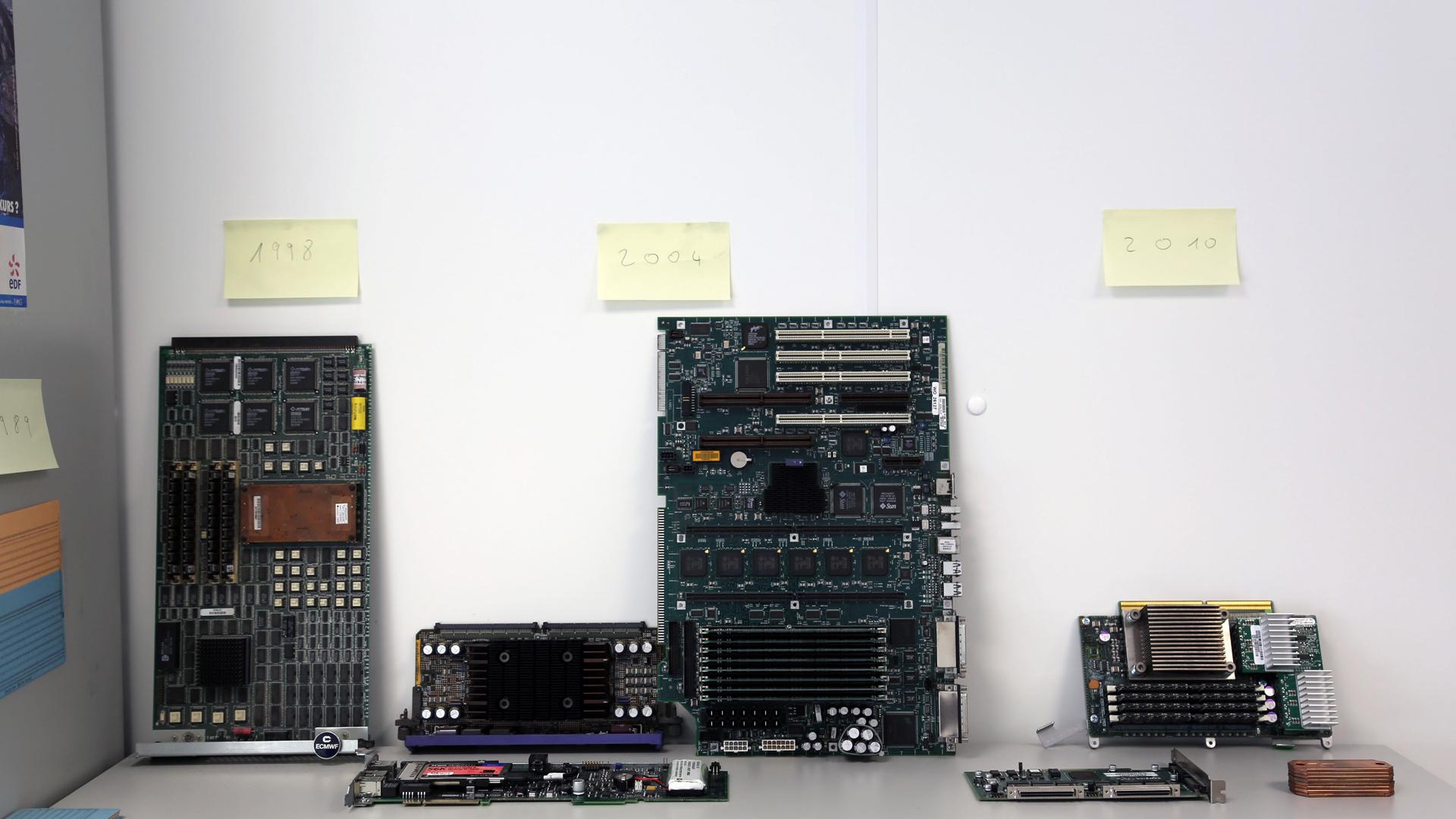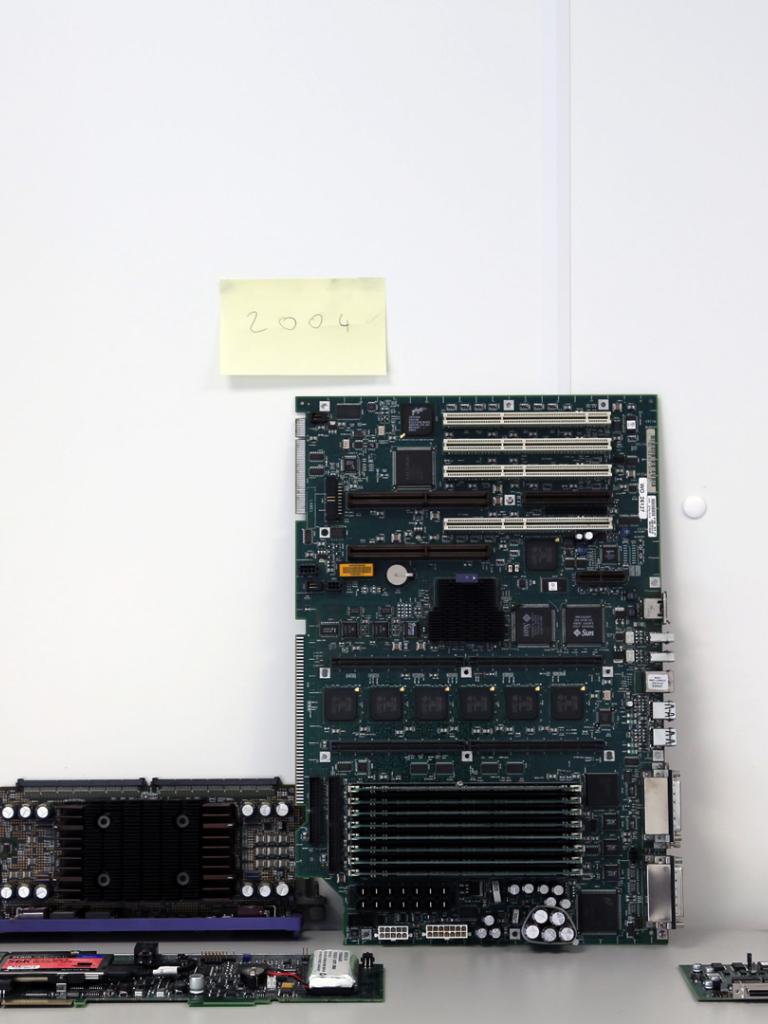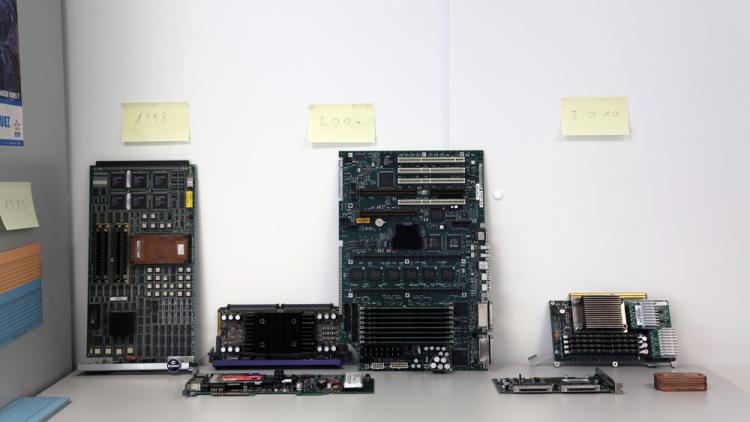Inside the EUMETSAT Polar System: Meet Yago Andrés
How Yago Andrés contributes to EUMETSAT’s next-generation polar mission.

Lothar Wolf has been working as Data Service Competence Area Manager at EUMETSAT for over 15 years.


18 May 2022
01 June 2019

To understand the job I’ll first explain how the organisation is set up. Here at EUMETSAT, we have a directorate that heads different divisions divided by “topics” under which you can find specific “competence areas”. A competence area is a combination of different people bringing together skills relevant to a specific subject. In my case, this is data services.
Data services consists of whatever leaves EUMETSAT. Our mission statement is all about operating meteorological satellites and delivering data 24/7 worldwide and so the types of data services we provide include engineering, maintaining and evolving all of the infrastructure elements, software and services related to data dissemination such as EUMETCast, archiving using tools such as the Unified Meteorological Archive & Retrieval Facility (UMARF), web dissemination and web-based visualisation such as EUMETView as well as the data discovery portals such as the EOPortal and ProductNavigator.
Basically, data services could be described as being a bit like providing all the elements for EUMETSAT’s shop window. What we develop is delivered to the operations side of EUMETSAT, who then manage the services and provide the interface to the users.
As Competence Area Manager I am supposed to manage all the services and skills needed to ensure we deliver what we are expected to. We have five sub-teams, each of which contains around five to six people and one of my favourite parts of the job is actually working with these people. We are constantly adapting ourselves to be prepared for the future needs of users and are always restructuring. One of the teams involved within Data Services is an innovation team that helps us to identify new skills and provides us with training plans to make sure we are always on top of the “data services” domain.
My work also involves a lot of contact with our member states, bilateral partners and other international organisations such as the World Meteorological Organization (WMO) to provide them with support on how data services are delivered to users worldwide.
By nature of the subject, data services have a large impact on the organisation and get a fair amount of visibility — this might sometimes lead to updating policies or strategies. One example was evident when the Director-General endorsed a new data services strategy and set several organisational objectives in order to achieve its implementation. Today it’s all about facing the “big data challenges” and what services we are giving to the users, so essentially data services has a very wide interest also inside the organisation.
The implementation of the data services strategy lead to the data services roadmap. One phase of this roadmap was an implementation of “pathfinders” for new services. It’s because of the work on the pathfinders that we were able to look further ahead and came up with the idea of the WEkEO Copernicus DIAS Service, a cloud-based platform that allows users to get free access to all Copernicus-related data.
How we implemented the new changes also had a severe impact on our ways of working with other departments, such as contracts and legal. Even changes to the data policy were made. The work allowed us to create new opportunities for not only people and industry but also EUMETSAT. As a final step, we are now engaging in an upcoming “European weather cloud”.
However, having said that, it’s important to know and to acknowledge that we are just one part of a big machine — we are the specialists on data services but we work with many other departments, teams and specialists together exploiting the matrix, and without whom the work and success would not be possible.
I began by studying meteorology and then started working for the Deutscher Wetterdienst (DWD — the German meteorological centre). Later on, I went to work at the European Centre for Medium-Range Weather Forecasts (ECMWF) as a software developer responsible for data acquisition and dissemination. During my time there I also played a role in system administration and bringing the numerical weather prediction into operation.
I then started studying computing and by chance, spotted a vacancy at EUMETSAT for the central facility that at the time had nothing to do with dissemination. When I got here, the organisation was restructuring and a dissemination team was created to lead the implementation of EUMETCast, our data dissemination system.
My story at EUMETSAT began with a failure on one of the elements of our first Meteosat Second Generation (MSG) spacecraft that lead to the creation of EUMETCast and I was amongst the few people who made EUMETCast fully operational.

So, I guess you could call these items a physical representation of my CV! Every “piece” has a specific memory linked to it.
For example, the one on the left from 1998 reminds me of my time at ECMWF. This specific part comes from a storage system attached to the supercomputer mainframe at ECMWF that had an issue. I dismantled the piece overnight in order to have the system back up and running. I basically took it from one computer and plugged it into another to get the system started again until a Japanese support engineer flew in from Japan to repair the overall system.
The item from 2004 (centre of photograph) is a central processing unit taken from the first EUMETCast system. It reminds me of when we first started and I had the opportunity to work with real experts — that was really enjoyable. One of those people was an engineer who worked on EUMETCast. At the beginning, there was a system issue and the only engineer who could work and repair it had to coordinate different support teams worldwide whilst being on-site 24/7. So I was in the computer room while she was busy trying to fix the system issue and I would be fetching the coffee and pizza to help her out.
I’m lucky to say that I have had many interesting experiences over the years and I think that’s because we have this big pot of people from all over Europe with different characters — there’s always a funny story.
I spend a lot of time commuting between work and home because I live in Bonn, which is about 150km away. That can be tiring but I am lucky as I get enormous support from my family on one side and my reporting manager on the other, hence I don’t really feel any constraints.
I have to say I have a really good foundation at home with my friends and family, I also have a newborn so I can completely switch off from work when I’m at home. On top of this, I love to be in the forest and you can also find me riding my motorbike or road bike.
I really enjoy working with the people here. It’s very important because eventually you end up spending more time at work than you do at home, therefore you have to get on well with people. I am also thrilled by the mass of competence that is available at EUMETSAT and I think everybody has the opportunity to do a really nice job.
People here get to shape their job and their activities with a large degree of freedom in the direction they wish and that is very rare for an international organisation. You don’t have to follow a managerial career if that’s not your thing. You can keep things technical and stay in your field.
We are also putting an enormous effort into recruiting recent graduates and I love having the opportunity to work with fresh minds that are full of new ideas. It’s a big step towards innovation and it is very rewarding.
I especially encourage our ECPC (Early Career Programme Candidates) to take the opportunity to shape their job. It’s really exciting. We offer people the opportunity to mould their career how they see fit and that is very rare in the public sector world.
You don’t want your brain to get lazy or to become demotivated, you want to be able to expand in your field and explore new ideas and possibilities.
Would I choose this path again? Yes, definitely, I have the complete package here by far.
Thanks so much Lothar for your interesting insight and for giving us a better idea of what it is you do!
Stay tuned for a regular feature on various members of staff to find out a bit more about the organisation and get to know us better.